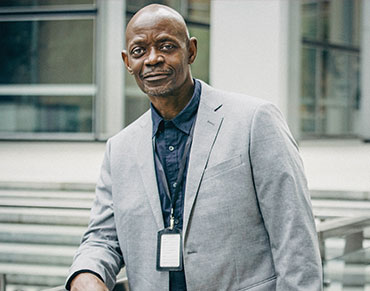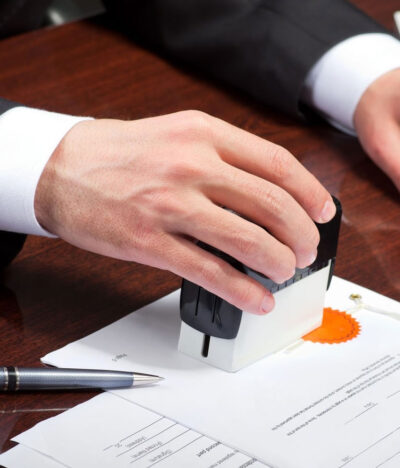Property Conveyancing in the UAE: things you need to know
The procedure is not simple, particularly when buying or selling a home abroad. Both the buyer and the seller must complete essential and time-consuming duties that, if not done correctly, might risk the transfer of your property. Several stages are involved when you purchase or sell a home in Dubai. You need a Conveyancing Lawyer to interact with developers, lenders, and governmental organizations to manage the relevant regulations, procedures, rules, and processes. Property conveyancing Services will help you stay away from scams and guarantee the legal transfer is completed quickly and effectively. You may designate your conveyancing lawyer to purchase or sell a property on your behalf if you cannot go in person because you are outside the UAE.
What is Property Conveyancing in the UAE?
Conveyancing refers to the legal procedure used to change real estate ownership from one owner to another. The previous owner gives you ownership of a property when you buy it, and when you sell it, the ownership is transferred back to the previous owner. There are often two phases to this: the exchange of contracts, during which the terms of the agreement are established, and the completion, during which the legal title is transferred.
Finding the proper conveyancer can help you avoid possible dangers and mistakes since dealing with the laws involved is a complex undertaking that involves many financial and administrative responsibilities. Although hiring a conveyancing lawyer is not required in the UAE, it is crucial to comprehend the real estate market and get appropriate guidance during the purchasing process.
What is the role of a conveyancer?
A conveyancer manages the settlement procedure. Most buyers and sellers of homes are unaware of the extensive paperwork, attention to detail, and labour required to transfer property ownership lawfully.
A conveyancer may help with both property purchases and sales by:
- Creating, clarifying, and analyzing legal papers, such as a power of attorney, a sale and purchase agreement or a Memorandum of understanding (MOU).
- Check the property’s certificate of title for easements, the kind of title, and any other information that requires attention.
- Determine different costs and levies associated with buying a home.
- Talk to your bank or other financial institution if a mortgage is involved.
- Working with a developer or facilities management firm can help you get a NOC for the property transfer.
- Use power of attorney to represent you in court as your attorney-in-fact and in dealings with the government, potential buyers, potential sellers, and their representatives.
- Make a secure agreement for the property transfer.
Do you prefer freehold or leasehold ownership?
Before purchasing an existing property, you must know the property’s freehold or leasehold status. In Dubai, buyer rights are the critical distinction between freehold and leasehold property. If you purchase a home on a leasehold basis, you will have property rights for a certain period, up to 99 years. It is the freeholder who ultimately retains the title to the land. Whereas, A freehold purchase gives the buyer complete ownership of the building and the surrounding land. After then, the owner may decide to sell, rent out, or use the property. Despite the legislative safeguards, it is crucial to be careful, which a conveyancing or property lawyer in Dubai can accomplish. The UAE Government has regulations in place to protect buyers from contractual violations.
You may want to know: How to resolve Rental Disputes: What’s the Best Way to Pay?
Property Conveyancing Procedure
- Agreement between Seller and Buyer
Once the buyer and seller have reached an agreement and have shown interest in transferring ownership of a property, and conveyancing may begin. Typically, a contract detailing the terms of the sale, the transfer date, and any unresolved details is drafted by the seller’s representative or real estate agency following the Dubai Land Department (DLD) format. Due diligence should be performed on the property and the parties eligibility to acquire and sell the property at this transaction phase.
- Finalization of Agreement between the Parties
The draft contract’s provisions will be discussed between the two parties, often via real estate agents. The buyer and seller finalize and sign the agreement if both parties are satisfied that it meets their needs. The contract should state whether you are seeking a mortgage and should be conditional upon successfully obtaining a mortgage from the bank. Additionally, if there is any delay in the approval of the mortgage, this can impair the property’s transfer date.
- Payment of Security Deposit
Once the parties exchange signatures on the contract, both parties have agreed to go through with the transaction. The cost of compensating the other party if you withdraw might be costly. If a buyer cancels, the seller may keep the deposit. If the seller does not comply, the buyer may be entitled to compensation from the seller or vice versa.
- Registration at Dubai Land Department
The seller and buyer must be present at the Dubai Land Department Registration department on the day of completion or transfer. Any parties may authorize a conveyancing lawyer in Dubai UAE to act on their behalf during the transfer if they cannot attend in person. The purchaser must make payment arrangements using manager checks and deliver the money to the trustee. The title deed and the keys are given to the buyer once the trustee officer hands the seller or agent the manager cheques.
How may Souzan El Kayaji Legal Consultancy property conveyancing specialists / solicitors assist you?
The intricacy of property registration is something Souzan El Kayaji Legal Consultancy Lawyers in Dubai are aware of. Thus we have chosen to provide our customers with a value-added service devoted to settling all sales transactions. We know that purchasing or selling a home is not always a simple procedure; whether you are the buyer or the seller, there are always essential and time-consuming duties that, if performed incorrectly, might jeopardize your property transfer.
Our property conveyancing solicitors regularly interact with developers, lenders, and governmental entities and are skilled in managing the plethora of essential regulations, procedures, rules, and processes, relieving you of the anxiety related to a property transfer. With the assistance of our conveyancers, the procedure will be straightforward, simple to comprehend, and expertly handled.
A conveyancing lawyer also has the following responsibilities:
- Describing and writing the Memorandum of Understanding.
- Reviewing the deadlines for completion and advising on any probable unique circumstances about the conveyance.
- Preserve the deposit checks until the transfer takes place.
- Ensuring all maintenance and service costs are paid following the developer’s specifications for a NOC application.
- Preparing and approving the final transfer paperwork includes a breakdown of all the funds involved.








